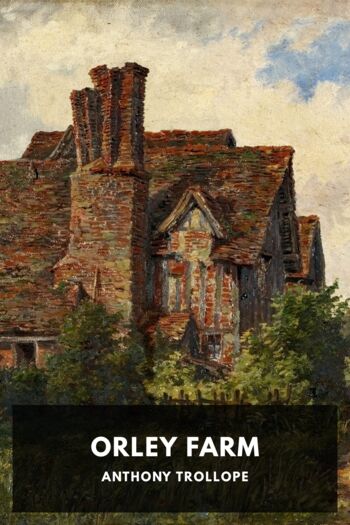Description
When the elderly magnate Sir Joseph Mason died, he left behind a very young widow and their little boy. This was his second marriage, the children by his first wife being fully grown with families of their own. He left his main Yorkshire estate to his eldest son, also Joseph Mason, but a codicil to his will left his town estate, Orley Farm, to the infant son of his second marriage. The eldest son believed his father intended to leave him the full estate, however, and the matter was taken up in court. The codicil was proved, despite irregularities, and Orley Farm became the home of Lady Mason and her boy, Lucius.
This is the state of affairs as Orley Farm begins, with Lucius now coming of age and taking possession of his inheritance. Owing to his own ambitious and stern personality—something of a Mason family trait—he claims back some acres that a local solicitor had been managing. The aggrieved solicitor cannot let matters rest, goes back over old papers, and discovers evidence which he believes demonstrates that the eldest son, Joseph Mason, had been in the right all along.
This sets in motion the main plot of the novel, declared already in its opening paragraph. But the plot thickens nicely and, as the legal case develops, a number of subplots emerge. The neighboring gentry, the lawyers, the judges, the witnesses—these each have their own tales to tell, and across generations: both the older ones who remember the original case, and the younger ones (contemporaries of Lucius Mason himself) embarking on adult life, with hopes and ideals of their own.
As ever, Trollope will not (and, it appears, cannot) keep secrets from his readers. The inherent drama of “Did she? or didn’t she?” is of little concern to Trollope’s crafting of the plot. In his autobiography he expresses some regret that he didn’t withhold a little more from the reader to heighten the drama, although he was pleased overall with the story itself. Despite this, his chief gifts as a novelist reach maturity with Orley Farm—his insight into human nature in particular—and these gifts have ample scope for expression in a novel deeply engaged in the great themes of sin and forgiveness, greed and avarice, truth and justice. It’s no wonder that C. P. Snow includes Orley Farm as one of his recommended entry points into Trollope’s vast body of work.


Аннотация к книге